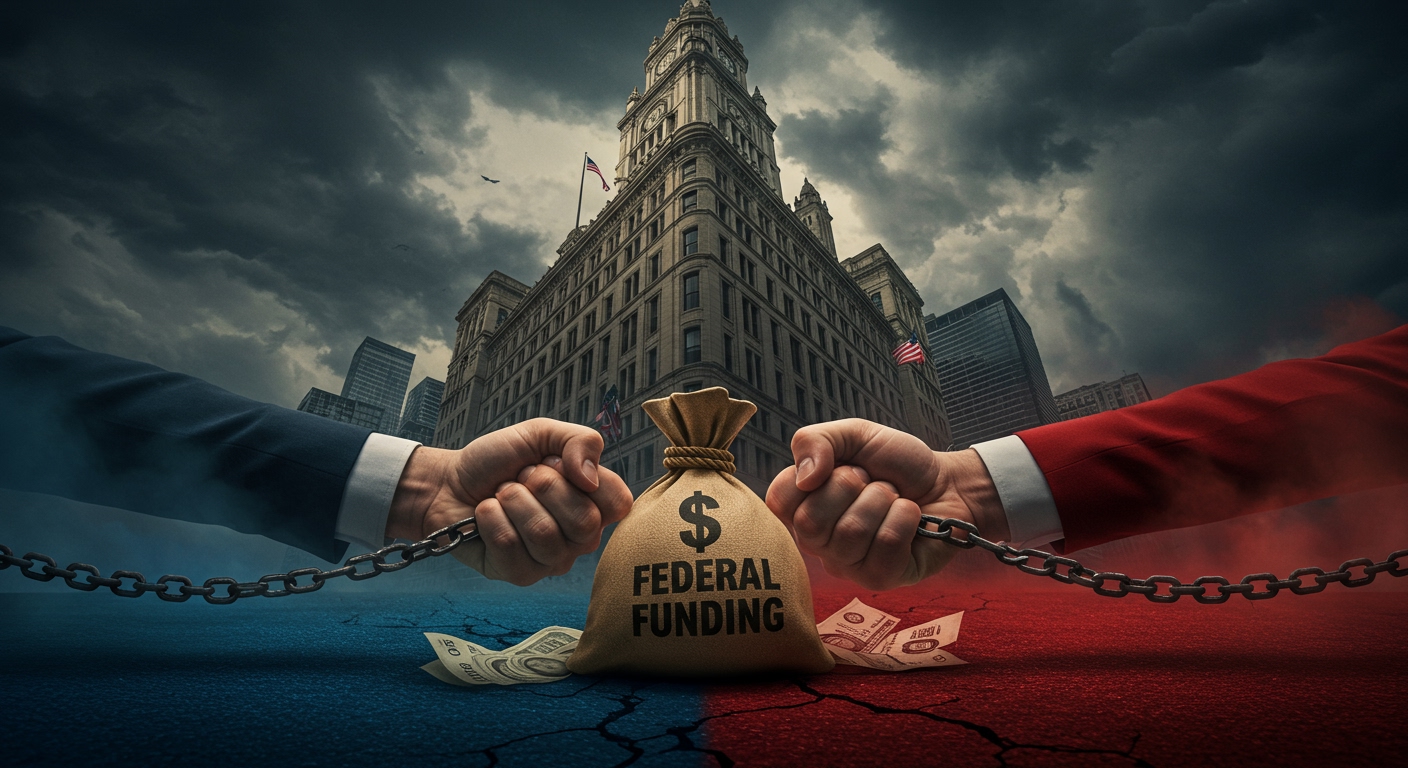The economic news for August 2025 paints a stark picture for the manufacturing sector, with the Chicago PMI (Purchasing Managers’ Index) dropping sharply to 41.5. This figure signals a deepening contraction, marking the 21st consecutive month below the 50-point threshold that separates expansion from contraction in the region’s business activity. The latest reading, released by MNI Indicators and the Institute for Supply Management, significantly missed consensus forecasts, underscoring a growing concern for market participants and highlighting a trend of sustained economic uncertainty.
Manufacturing Downturn Deepens
The Chicago Business Barometer, a key indicator of the region’s manufacturing health, fell by 5.6 points from July’s revised 47.1, reversing much of the modest gains seen in the prior month. Economists had anticipated a slight dip to around 46.0, but the actual decline to 41.5 signals a more severe slowdown than expected. This downturn was primarily driven by a substantial pullback in new orders, which plunged by 10.8 points – the largest monthly decrease since September 2023. Additionally, the employment index contracted significantly, reaching its lowest level since June 2020, while production figures softened to their weakest point since December 2024, marking the fifth consecutive monthly decline. Order backlogs also eased, further indicating a lack of robust demand.
While the broader U.S. manufacturing sector, as measured by the S&P Global PMI, showed signs of renewed improvement, rising to 53.3 in August, the Chicago region’s performance stands in stark contrast. This localized fragility, particularly within capital-intensive industries, presents a complex economic landscape. The persistence of these contractionary trends has become a familiar piece of economic news, yet the sharp August decline reinforces anxieties about the manufacturing sector’s ability to find a stable footing.
Automotive Sector Faces Intensified Headwinds
The automotive industry, a cornerstone of capital-intensive manufacturing, is feeling the brunt of this economic pressure. The Chicago PMI’s weakness in new orders and production directly impacts automakers, who are already grappling with a confluence of challenges. Tariffs, including a 25% levy on imported vehicles and parts, continue to exert pressure on margins and increase costs. This, coupled with supply chain disruptions and weakening consumer demand, creates a precarious environment for manufacturers. Automakers’ high fixed costs amplify these vulnerabilities, making them particularly susceptible to downturns in sales volumes.
Historical data shows that auto stocks tend to underperform during periods when the PMI falls below 50. With new EV demand facing challenges and inventory levels presenting issues, the sector’s outlook remains particularly dim. The financial repercussions extend to suppliers, with many reconsidering sourcing strategies and automation investments in response to high labor costs and tariff uncertainty.
Investor Pivot Towards Financial Stability
In the face of this prevailing economic uncertainty and the visible struggles within the manufacturing sector, investors are increasingly favoring more defensive assets. The financial sector, particularly consumer finance and fintech, is emerging as a popular destination for capital seeking stability. These firms are perceived to benefit from the very economic stress that plagues manufacturers. As economic conditions tighten, demand for credit services, personal loans, and small business financing typically increases, providing a stable revenue stream for consumer finance companies.
Fintech firms, with their often lower-cost digital models, are demonstrating resilience. They offer essential services that can scale efficiently even in challenging economic climates, making them attractive hedges against industrial sector volatility. While the fintech industry has also faced pressures from economic downturns, its ability to adapt and offer convenience and price competitiveness positions it favorably for continued, albeit perhaps more measured, growth. This strategic rotation reflects a broader trend of investors seeking out less cyclical industries amidst a fragmented economic recovery.
Broader Economic Concerns and Future Outlook
The persistent weakness in the Chicago PMI underscores broader economic concerns. Inflationary pressures, though moderating in some areas, remain elevated, impacting consumer sentiment and spending power. The rise in year-ahead inflation expectations reported in August further compounds these worries, signaling that households are anticipating continued price increases. This climate of uncertainty, exacerbated by shifting trade policies and tariffs, creates a challenging operating environment for businesses across the board.
Market participants are closely watching for signals from the Federal Reserve regarding potential interest-rate adjustments, with some anticipating cuts later in the year. However, the underlying weakness in manufacturing, as evidenced by the Chicago PMI’s prolonged contraction, suggests that significant headwinds remain. The economic news indicates a continued need for strategic maneuvering, with a clear trend of investors de-risking by moving capital from economically sensitive industries toward sectors offering greater perceived stability and resilience. The current trend in this popular news cycle points towards a cautious outlook for manufacturing and a search for more secure investment havens.














